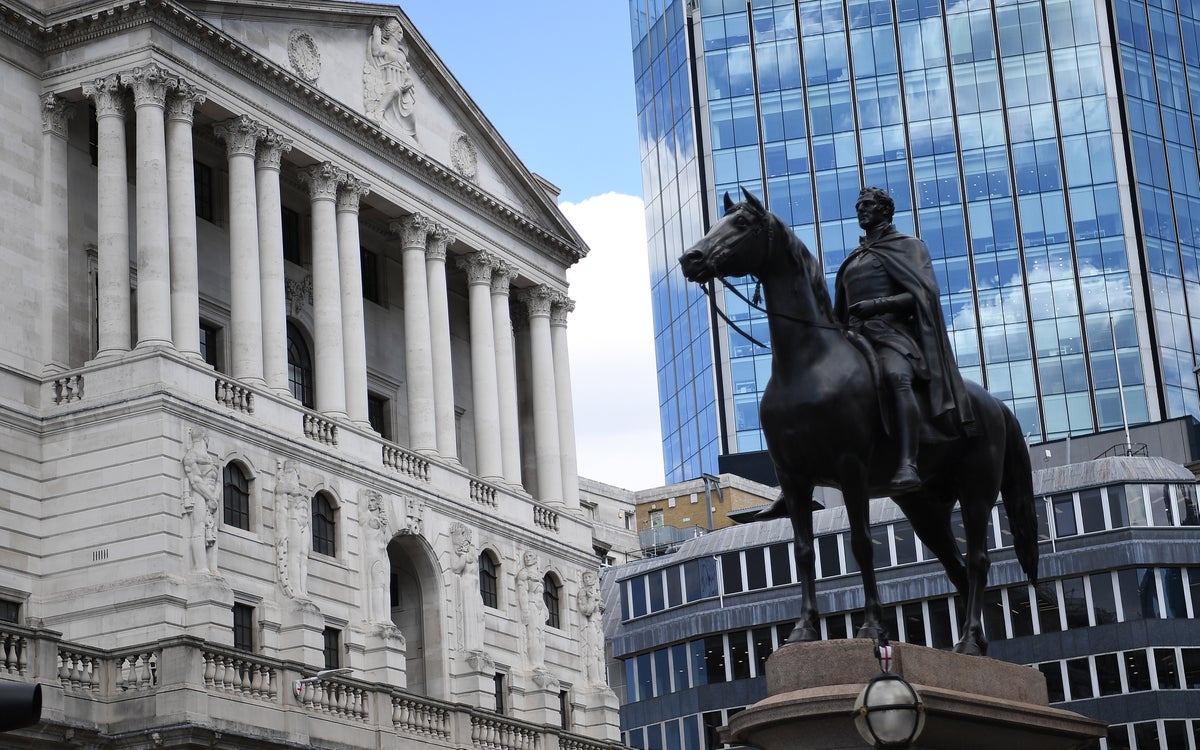
UK interest rates rose by 0.5 per cent to 2.25 per cent on 22 September as part of a bid by the Bank of England (BoE) to temper soaring inflation, placing it at its highest level since the global financial crisis of 2008.
The decision by the institution’s Monetary Policy Committee (MPC) was widely expected but had had to be delayed out of respect for the late Queen Elizabeth II and the ensuing period of national mourning.
Now, after the chancellor’s new tax cuts sent sterling tumbling, the BoE has put out a statement saying that it “will not hesitate” to raise interest rates even further.
Many analysts thought the Bank’s Monetary Policy Committee might hold an emergency session to steady the markets but instead governor Andrew Bailey indicated that they would meet in November as planned.
He said the committee would make a full assessment of the impact of inflation and the fall in sterling at the scheduled November meeting and then “act accordingly”.
“The MPC will not hesitate to change interest rates by as much as needed to return inflation to the 2 per cent target sustainably in the medium term, in line with its remit,” he said.
Earlier in September, the Office for National Statistics revealed that the rate of CPI inflation had fallen to 9.9 per cent in August, down from 10.1 per cent in July.
Although experts had predicted that the figure would remain unchanged in August, downward pressure was put on the inflation rate by the falling price of fuel.
Here is a quick and easy guide to how the interest rate change will affect you.
What are interest rates?
An interest rate is a measure that tells you how high the cost of borrowing money is, or how high the rewards of saving are.
If you are borrowing money, typically from a bank, the interest rate on that money is the amount you will be charged for borrowing it.
It is a charge on top of the total amount of the loan and will be shown as a percentage of the overall.
Cost of living: How to get help
The cost of living crisis has touched every corner of the UK, pushing families to the brink with rising food and fuel prices.
- The Independent has asked experts to explain small ways you can stretch your money, including managing debt and obtaining items for free.
- If you need to access a food bank, find your local council’s website using gov.uk and then use the local authority’s site to locate your nearest centre. The Trussell Trust, which runs many food banks, has a similar tool.
- Citizens Advice provides free help to people in need. The organisation can help you find grants or benefits, or advise on rent, debt and budgeting.
- If you are experiencing feelings of distress and isolation, or are struggling to cope, The Samaritans offers support; you can speak to someone for free over the phone, in confidence, on 116 123 (UK and ROI), email jo@samaritans.org, or visit the Samaritans website to find details of your nearest branch.
Higher percentages mean paying more money to the lender for borrowing the money.
If you are saving money in a bank account, the interest rate on that money is the amount you will accrue on top of your savings. Banks will pay you a percentage of your total savings, typically at the end of the year.
How do interest rates affect inflation?
Low interest rates are used to discourage people from piling up their money in savings. High interest rates encourage saving because people get a better return for the money you are putting away.
This in turn has an affect on the price of goods.
When interest rates are low, people might spend more and this might cause retailers to put up the price of goods.
When rates are high, demand might fall as people put more money into their saving pots. This, in theory, should drive down the prices of good and services.
However, rising prices are not a direct result of interest rate changes. Other things, including the supply of money and underlying costs, affect prices and cause inflation.
Interest rates can only help manage inflation.
How do interest rates affect mortgage rates?
Changes in the BoE’s base rate, which is the interest rate at which high street banks borrow from Threadneedle Street, has a knock-on effect on the interest rates that the former then set their mortgage borrowers.
How does this affect me?
The changes in interest rates will affect anyone with savings and anyone who is borrowing money from the banks, for example in a mortgage.
It will also have a wider effect on the economy. By raising the base interest rate, the BoE is hoping to temper soaring inflation and help with the cost of living crisis.







